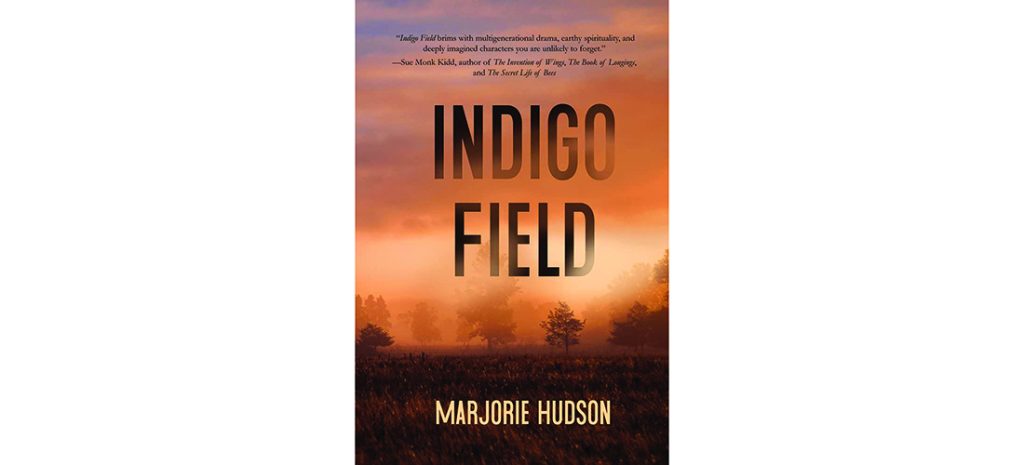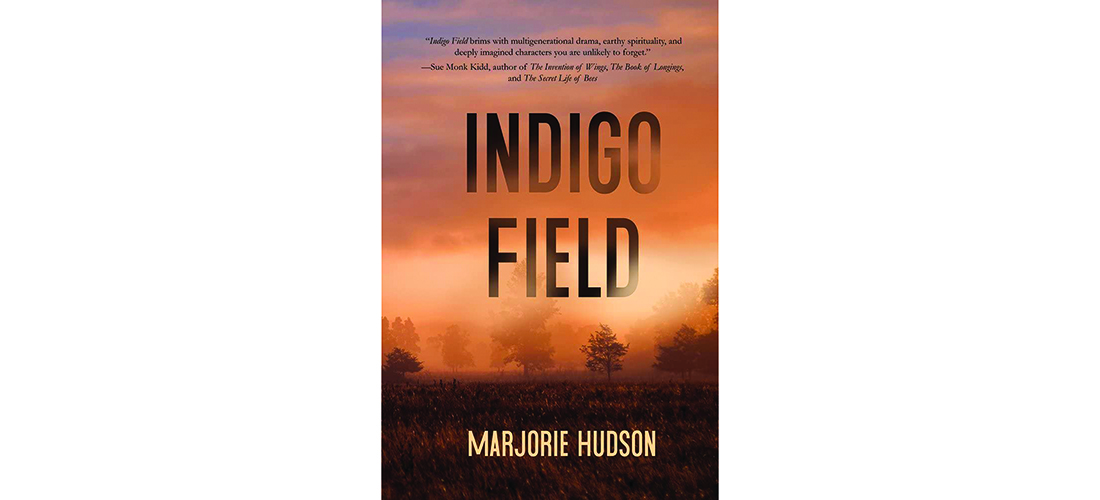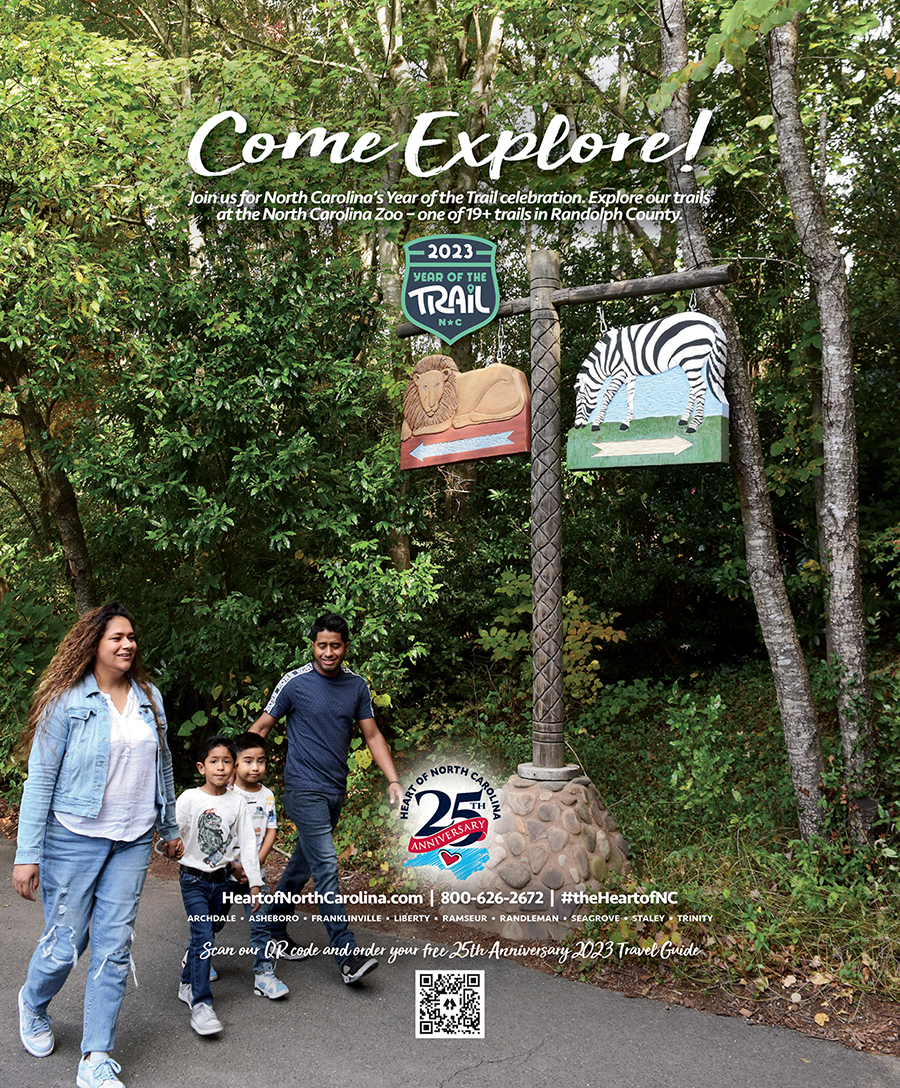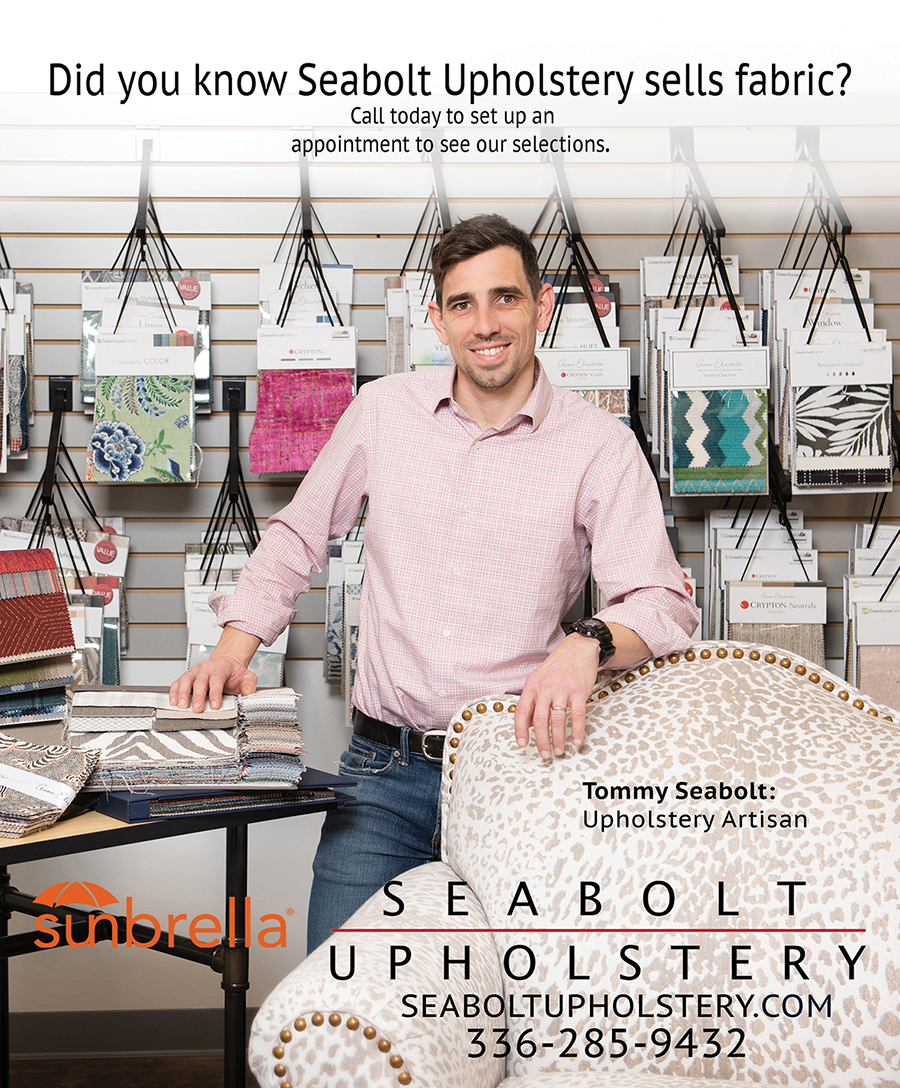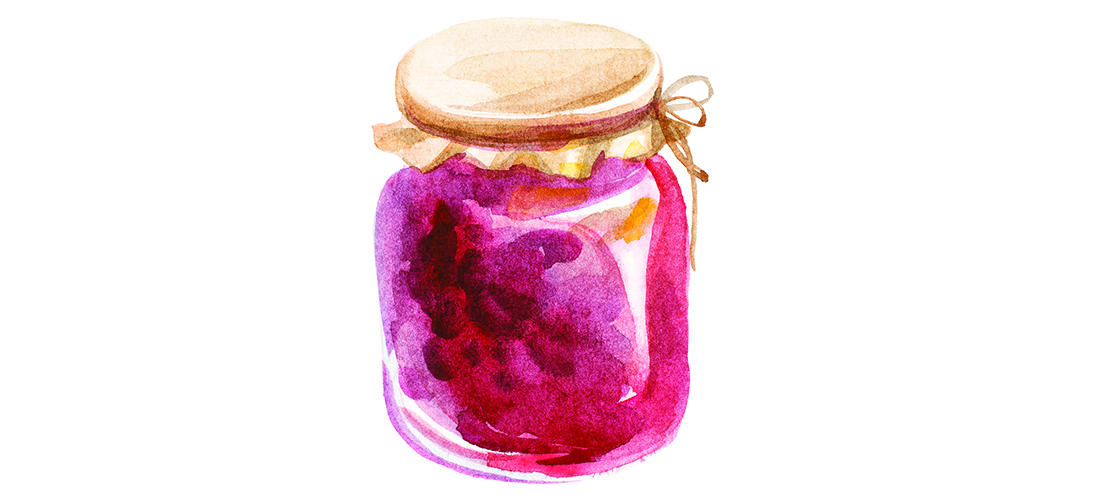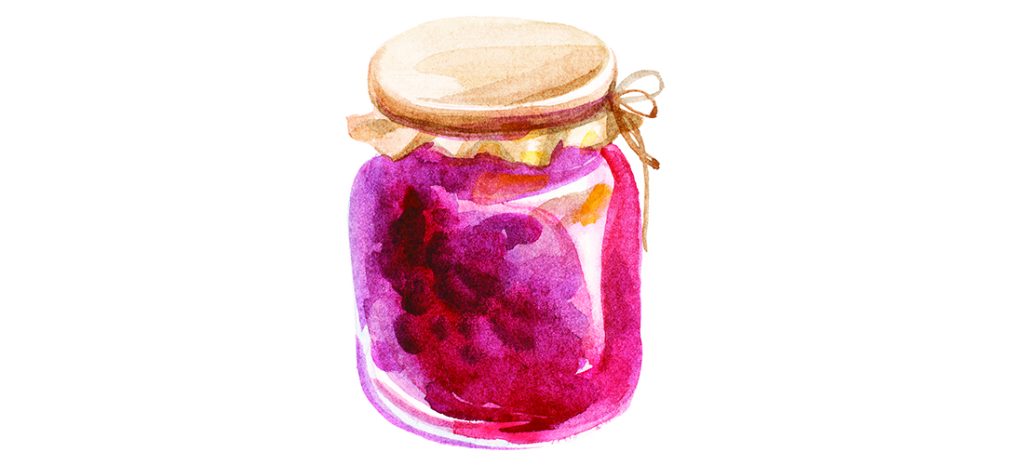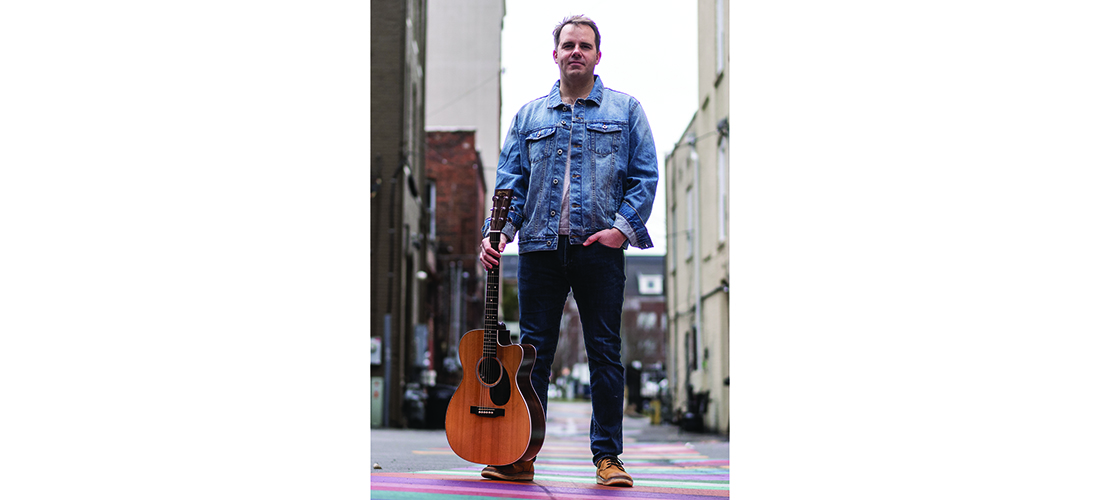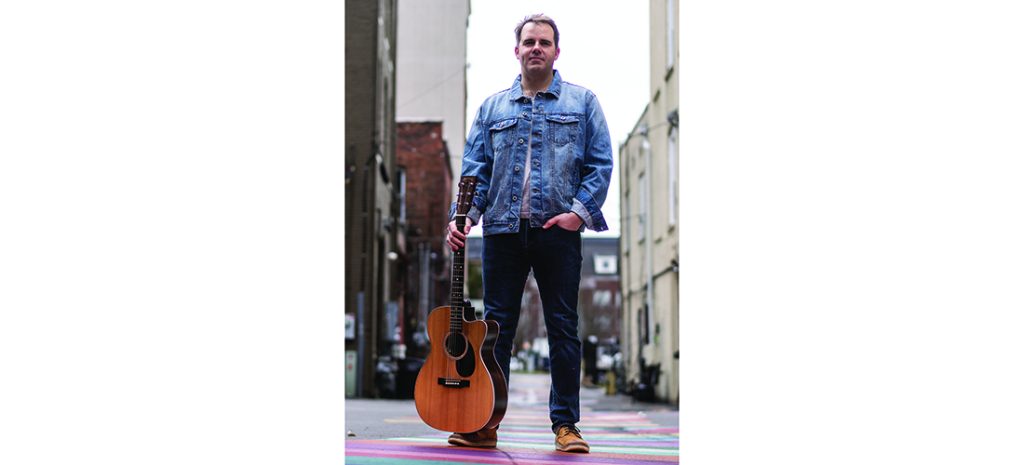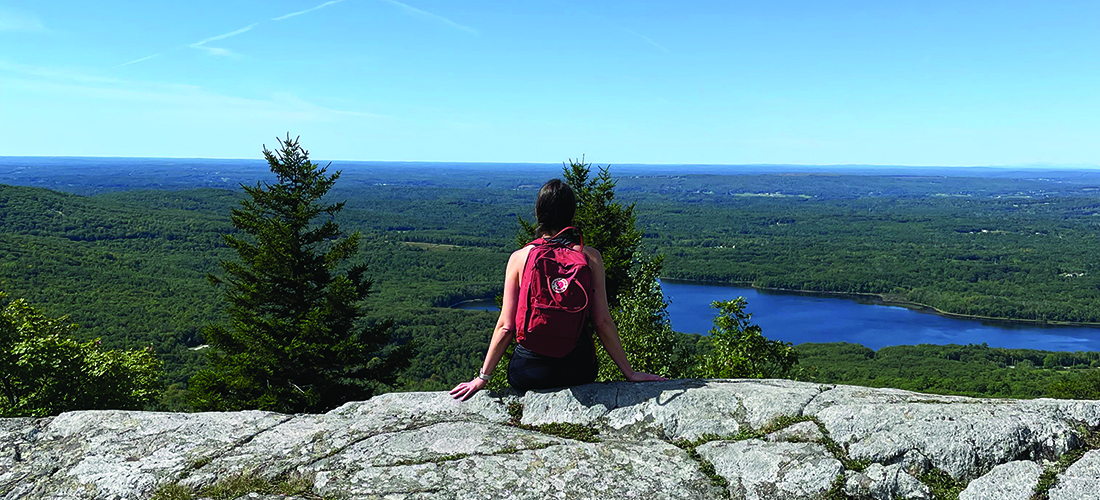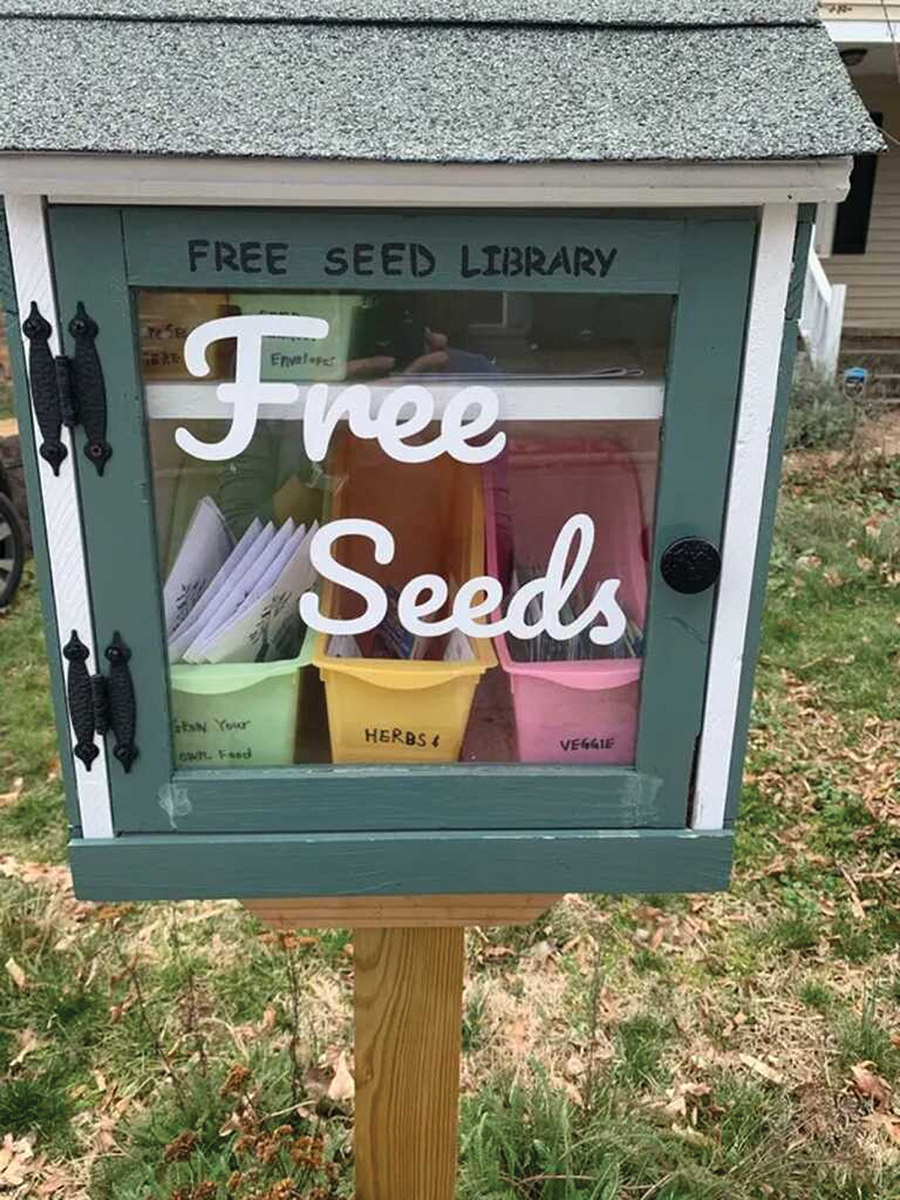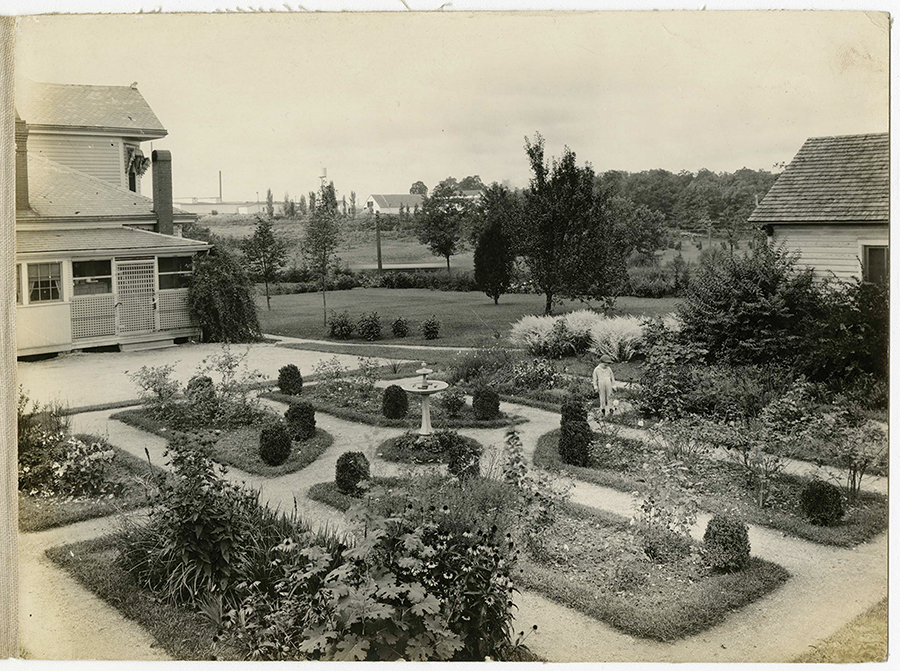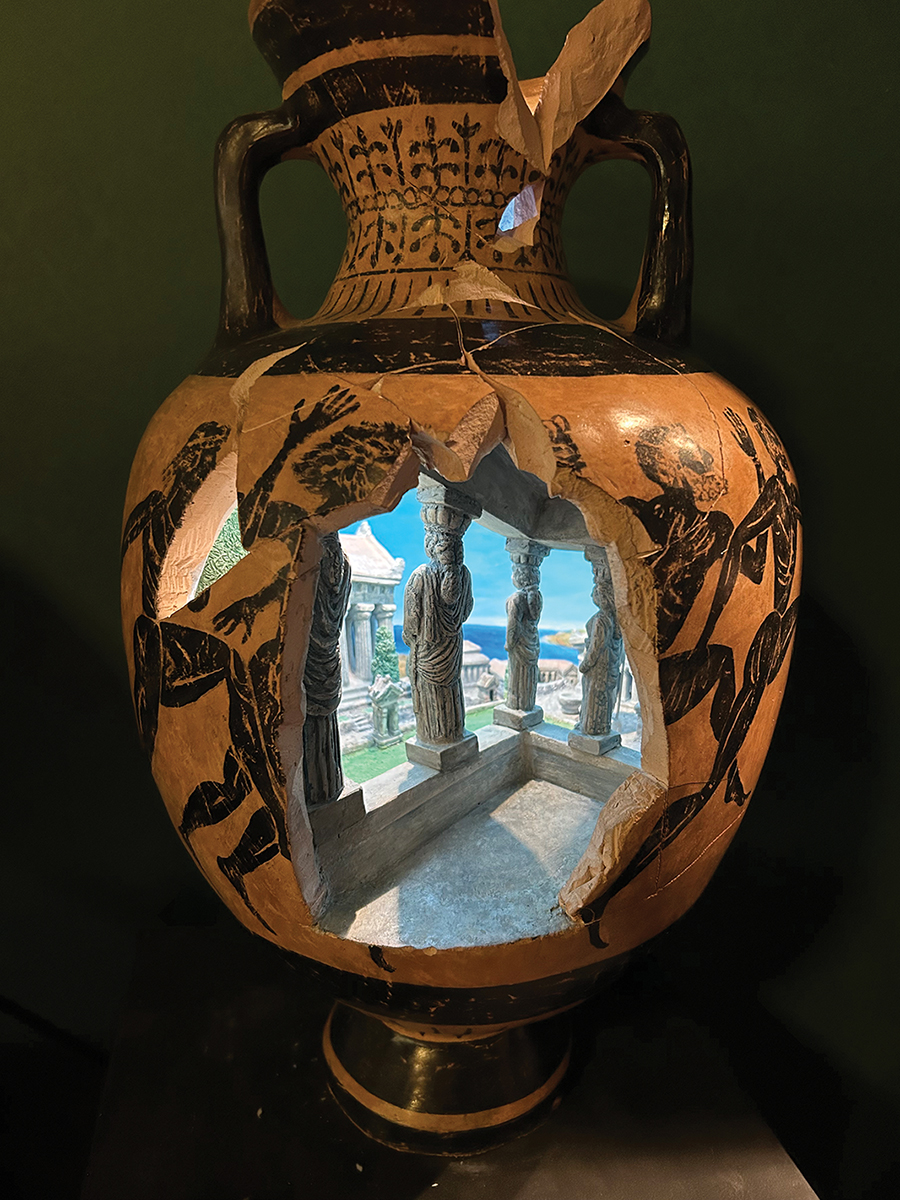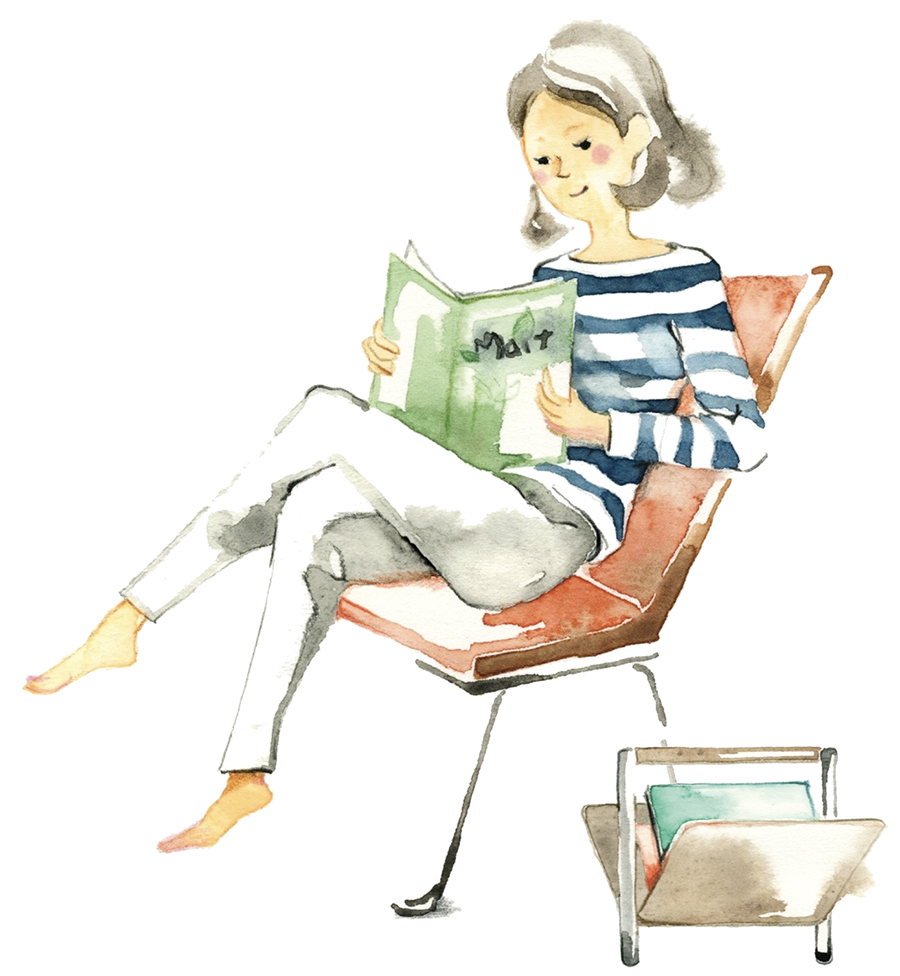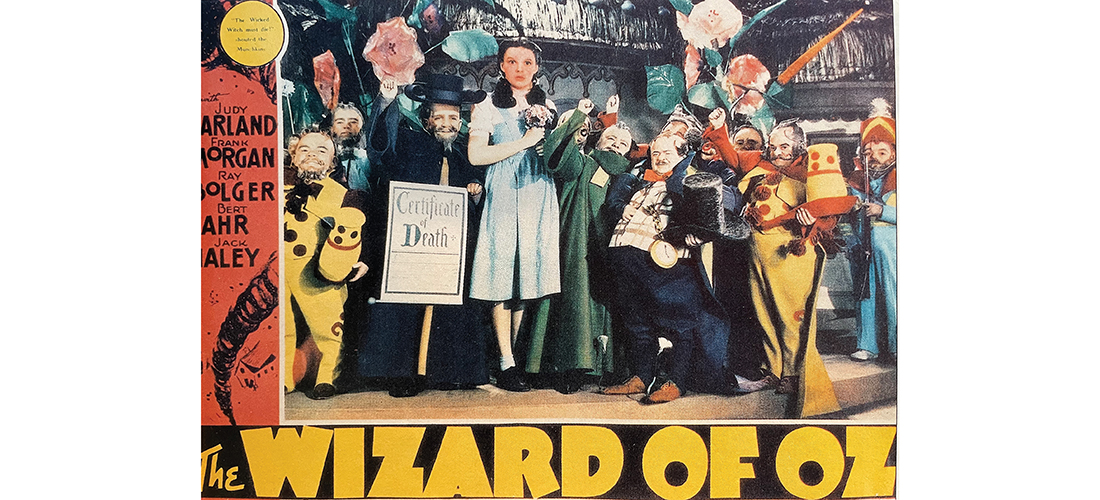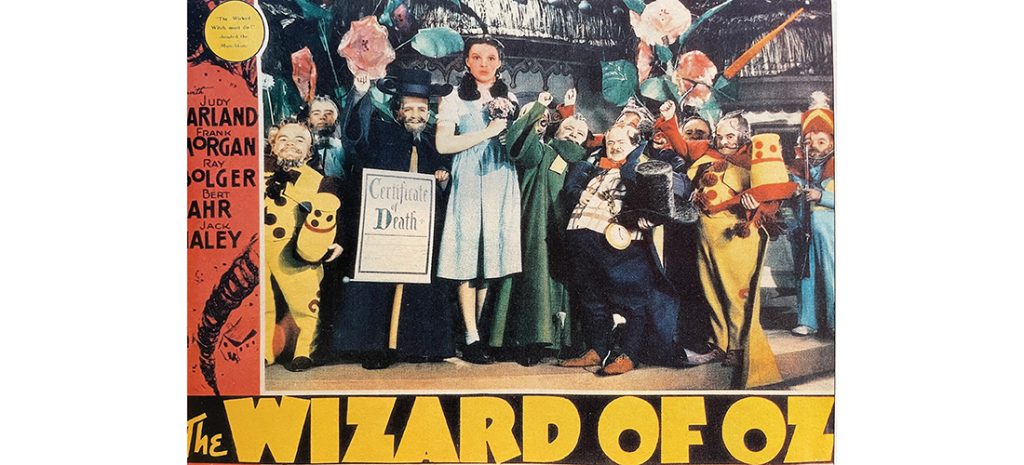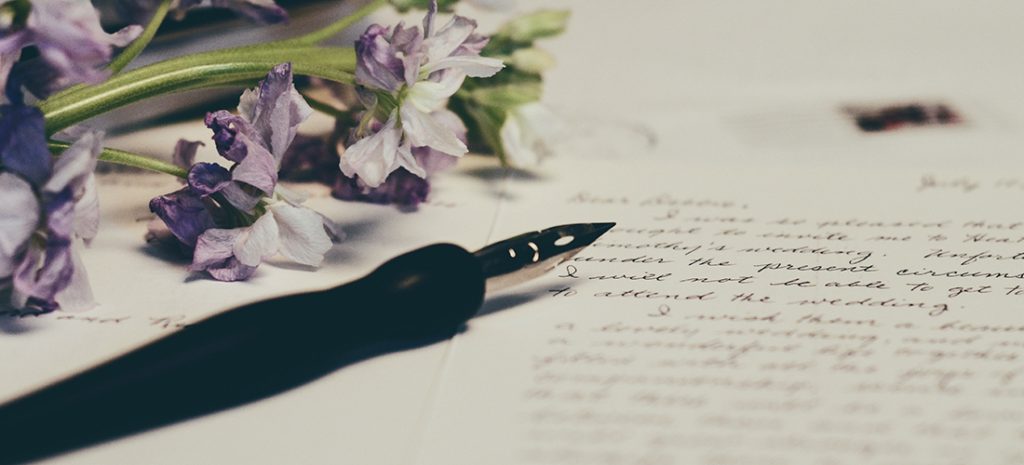The Big Year
By Art Williams
It was the year I turned 15 when I had changes in my life that I would never have imagined. My parents announced that our family was moving from our home in Tennessee to North Carolina.
For my father it was an opportunity to get a promotion with his company, Du Pont, and finally return to his hometown of Greensboro. His life journey had begun here after The Great War. His path led to a degree from NC State, marriage, and then four years in World War II as an officer before returning to start life anew with the wife he adored. So, yes, he was glad to return to his roots. As for me, it meant jumping into a new culture, changing schools, and losing all my friends, including a girlfriend of almost two years. She was a good kisser.
My mother was glad for the change as well. Returning to North Carolina meant she had her relatives close by in Raleigh and Hamlet. Our nuclear family was already familiar with the state. Every summer we vacationed through the Blue Ridge, Triad, and Triangle and on to the beaches.
But that year would be different – a permanent move. It was like going through a time warp. In Tennessee, the schools taught history about that state – often related to the Civil War. North Carolina focused on the Revolutionary War, and I had to adjust my perspective. Other adjustments here were disorienting for a teenager who was trying to get a grasp on a new life. I also had to overcome a Tennessee accent.
In addition to hiking the Chickamauga Battlefield near Chattanooga, I had grown up watching cars go by our house and could name the makes and models from memory as they approached our intersection. Some of the license plates portrayed the stars and bars flag of the South and the phrase “Forget. Hell no!”
Chattanooga was proud of its historic tourist attractions. It boasted of Rock City as the place to see – promoted in red and blue paint on barn roofs throughout the region. The Lookout Mountain Incline, where you could take a tram to the peak, allowed a great view of the cityscape and surrounding countryside.
I remember it was while waiting to ride that tram, as an 8-year old boy, that I started to drink from a water fountain when my mother and sister called me back. I stopped and looked up as they pointed to a sign that read “Colored”.
That is one of my first memories of such a thing as a separation between races. The concept was confusing for a young boy who just wanted to play sports, ride a bike, shoot fireworks, run free with his friends, and maybe kiss a girl or two. For all of Tennessee’s teaching of history we didn’t discuss segregation, discrimination, or race relations. Those would be new words and ideas brought home to me in 1963 as we arrived in Greensboro.
My parents bought a fine house just outside the city limits, near the end of a road named Hobbs, and the big move was underway. We stayed at the Journey’s End Motel along Battleground Road – that building is long gone – the site turned into shops.
The day we expected to move in, the trucking company called and said the moving van’s clutch had burned out going through the mountains, and it would take an extra day to deliver all our worldly possessions. So, for one more night we went to another motel across the street from First Baptist Church – the church to which we would later transfer our membership.
That day, as part of getting to know the area, and to distract my two sisters and me, dad and mom piled us into the car. We went for a drive along Friendly Avenue and Market Street, down to Elm and Davie.
Dad recalled, as a kid, he had a newspaper route, so he took us by the building that housed the Greensboro News & Record, now the Arts Center. Unknown to me at the time, the newspaper was the company where I would work as an intern reporter while studying journalism at Chapel Hill only five years later, and then work in the advertising department.
We drove further down memory lane as Dad took us past the bus station at the corner of Edgeworth and Friendly, across from the Sears store. As a teenager, he had also worked as a soda jerk at the bus station. The next few turns took us past the Myers Department Store, Mayfair Cafeteria, and the Woolworth’s buildings.
As we turned onto Friendly toward the S&W Cafeteria, we saw people carrying placards in front of the restaurant. I remember my father saying something like ‘Uh, Oh’, as he turned the car away from the area. It was the first time I saw picket line, a protest of any kind. And the protesters were all black. I didn’t have time to read what the words were on the signs.
That fall, I discovered our next-door neighbor was the manager of the S&W. As part of a carpool, he gave his daughter and me a ride to Grimsley Senior High. I found out he was the man who had stood in the doorway of the S&W with a shotgun during that long hot summer. He explained that he saw no reason why black people should not eat at his cafeteria. Most of his kitchen and serving staff were black. He worked beside them every day, and said he would defend their right to eat there.
That year taught me many things. I could survive change, a broken heart, and losing friends. I could face new realities and strive to understand the world around me better as it changed and as I changed. I learned that sometimes we are in the middle of history while it is being made.
The Red Ticket
By Kay Cheshire
The idea of luck to me as an 8 year old simply meant my friends were lucky to have more toys, a bigger house or they didn’t have to walk to school. When I told my father the neighbors were lucky because they had a new car, he told me luck had nothing to do with it. Hard work is what gets the things we need. Only fools rely on luck, he’d warned me.
That same year the Catholic elementary school I attended in the early 1960s was raffling off two Schwinn bicycles, one for a boy and one for a girl. The boys’ tickets were blue, the girls’ were red, and each ticket cost twenty-five cents. I was determined to own one of those red tickets. My second-grade friends had theirs, comparing numbers, each convinced they would be the lucky winner. Everyone kept asking me why I didn’t have a ticket. One night at dinner I asked for twenty-five cents to buy a ticket.
My father said, “You won’t win. It would be like throwing money into a river.”
The disappointment rolled over me, flattening any hope I would get a red ticket. All through the night I tried to think of how to get a quarter, even praying. As though higher beings carried coin purses to drop change from Heaven. I didn’t care about the bicycle I just wanted a ticket like my friends.
The next morning, my mother handed me three cents to buy milk in the school cafeteria. We called those three pennies the “milk money” and each day she would give me my milk money.
Walking to school I counted on my fingers how many days of saving three pennies until I had twenty-five cents; it would take nine days. The raffle was in fourteen days. So, at lunch I put the milk money in my sock and drank water for the next two weeks. I was proud of myself for figuring out the math.
At the end of the nine days, I took the pennies and bought my red ticket. It became my most prized possession. I looked at that ticket every night before I went to sleep.
The drawing for the bicycles was the last day of school before summer break and when the big day arrived all the students packed into the cafeteria. The bikes gleamed on the stage, black and silver for a boy, red and silver for a girl.
The parish priest was asked to pick the winners. He spun the drum full of blue tickets first, revolving it several times for dramatic affect. All the boys waited anxiously. He picked a ticket, called the number. A fifth grader yelled, raising his hands over his head, running like a sprinter up the stage to receive his prize. Everyone clapped, others shook his hand as he beamed.
Then the priest rolled the girls’ drum turning it over and over, finally selecting a ticket. He called out the number, but no one yelled. Instead, there was a low murmur like a swarm of bees. The priest repeated the number and waited. A girl next to me yelled.
“She’s got the number!” Pointing at me
I looked at her, looked at my ticket, looked at the number. I don’t remember much after that as people started pushing me, clapping, and slapping my back. I eventually made it up the stage and stood next to the boy winner while a picture was taken for the school newspaper. Then someone helped me and my bicycle off the stage.
I had to walk the bike home because I didn’t know how to ride a two wheeler. The neighborhood kids followed me like the Pied Piper, touching the chrome and the red and white streamers dangling from the handlebar grips. It was better than any Christmas morning I had ever known.
Someone ran ahead to my house to announce I’d won. I rolled the bike down our driveway eager to prove there really was such a thing as luck. But my parents weren’t as thrilled as I thought. They both wanted to know where I got the money and when I explained I’d saved my milk money, my mother accused me of stealing.
“I didn’t steal anything,” I protested. “You gave the money to me. I thought you’d be glad I’d figured out the math.”
To me, stealing meant taking money belonging to someone without them knowing it. I had no idea what I’d done was considered stealing. I worried how long I would have to stay in jail for stealing twenty-five cents.
But my father said he was glad I’d won the bike, giving my mother a strange look. The money was never mentioned again.
During those summer months while my father taught me to ride that Schwinn two-wheeler, I kept turning around to be sure he was holding on.
Then one afternoon he let go and I stayed upright. It was the first taste of freedom all children discover, and for me I’d bought that freedom with twenty-five cents.
I’m sure it was luck I’d won the bike it certainly wasn’t hard work. It was the only bike I ever owned and when I left home to attend college, my parents gave the bike to a charity who refurbished bicycles for disadvantaged children as Christmas gifts. I was always glad another young girl would be lucky enough to own that bike.
As an adult, I often experienced that force of good fortune, known as luck. I’ve won other raffles, door prizes, and small amounts of money from lottery tickets, but I’ve also worked hard for the things I needed. Like my father said, only fools rely on luck.
1999
By Myra J. Stephens
I felt as though I’d been slapped across the face with an admonition from the Universe to, “Pay attention, Woman!” It was a small notice in the Sunday paper, ‘Auditions: 3:00 – 5:00p.m.’, that had virtually reddened my cheek. As I checked the time and place, I announced, “I’m going to audition for this play!”
My nearly college-age daughter replied, “Can you act?” She said this as if she were asking me if I were certain I had the skills to hunt wild boar. To make a long story short, I went to the audition and was cast in a leading role.
The things I learned performing in that production, and the bonds of friendship that were forged changed my life and expanded my horizons. I’m pleased to say that I was fortunate to meet one of my very good friends during that show and we have maintained that relationship to this day.
There is nothing like being alone on a stage with the audience’s eyes trained on only you. It was the most difficult part of the role for me; to forget the audience existed and to stay firmly in the moment of the story. But in learning it, I gained confidence in my own creativity and my own worth and not long after, I began to seriously write. It took some time to get it right, but four years later, I wrote and directed my first play.
This time in my life was a learning experience in many ways and just as it’s
important to take your car to the dealer when the ‘check engine’ light flashes red, our bodies also have the same kind of warnings. The tricky thing is being aware and paying attention to those personal ‘check engine’ lights. Something as simple as a minor sniffle can morph into a sinus infection, then slyly slip down the respiratory system and decide to hang around as viral pneumonia if we don’t take care when the original sniffle arrives, and there are even more insidious warnings that can be easy to ignore.
In my case, burning the candle on not two, but four ends, was a stressful
situation. I was working, acting, writing, and keeping a house and family in order, which to my twisted way of thinking was perfectly normal and I could handle it. Handling it, apparently included, using my time during lunch and after work to learn my lines, and/or go to rehearsal, and then staying up until one or two o’clock in the morning to write. This didn’t leave much time to sleep or eat and I subsequently lost twenty-five pounds
without even noticing. That was a bright red, flashing ‘check engine’ light that I was choosing to ignore. But everyone knows what happens when you pretend those red lights aren’t flashing.
It would be like playing chess in the park with a six-hundred-pound gorilla who cheats. Are you going to be the one to tell him that you know he’s been cheating? Of course not, because it would be a disaster for you.
To put it politely, my engine stopped running, as in broke down. After four days of being unable to get out of bed and crying non-stop for no reason I could identify, my doctor put me in the hospital for my own safety. Unkind people were much more descriptive; ‘she’s lost her marbles’, ‘she’s gone bye-bye’ and my favorite – ‘she’s gone to the loony bin’. But the truth is, it was probably the best thing that could have happened. It identified a manageable problem and once the problem was identified, I was able to get back on track. Once I was back on track, I took steps to stay there. This
included developing coping skills, learning to deal with stress and time management, and of course balancing the chemicals in my brain through medication, which cannot be stressed enough.
When I was ready, my writing and the rest of my life was waiting for me; from fairy tale princesses managing OCD and nymphomania to Southern Gothic Christmas fare to a journey through a crisis of faith, I’ve tackled them all. Apparently, I don’t fit into a specific genre.
Eventually I became close friends with an actor who played opposite me in
several productions, and we became so close that we married in 2007. Our marriage has been a joining of two creative forces that together form a shining light. We’ve retired to Greensboro and are currently dipping our toes into what appears to be a wonderful theatrical environment, and it all began with a small audition notice for The Cemetery Club. Apparently I do have the skills to hunt wild boar.
The year that changed everything
By Wanda Kersey
Thousands of people are told something every day that changes the rest of their life. In January 2022 I was sitting in a drab doctor’s office chair and remember looking up at the doctor as he stood, leaned against the white office cabinet and delivered the news that no one wants to hear: I was going to die. My diagnosis was acute myeloid leukemia. I was told I might have 3 months to live.
I just sat there. My mind went blank. Did I just hear that I was going to die?
My thoughts and perspective changed immediately.
When I left the cancer center, my mind went racing. I had so much to do. I am a “collector of things”, especially snowmen, milk glass, and toys. I’m not a hoarder, but I did see a lot of value in things. After the initial shock, all I could think about at first was my stuff. All of a sudden, my stuff lost all its value. I really felt the need to get rid of so much. It makes me ask the question, “What really matters?” I feel my answer now is to not be afraid, and to have a good attitude and outlook, no matter the odds. Possessions and things just don’t matter like they used to. I have been able to let go, and put my trust in God (though I still have a soft spot for sweets).
My son, my sister, my brother, and many others have been right there for me, and they still are, 11 months later. Yes that’s right, I am still kicking, against all odds. I told my doctor that I wanted to enjoy the life I had left to live and not be sick. I want quality, not quantity of life. Though there was no available treatment for me, due to my age and other health issues, he told me they would bring in hospice to my home. But I can say I never thought I would see this Christmas.
I don’t know what I would do without my family. I mean, I have a friend-base beyond all belief. I am so grateful for the love I have received this year and don’t have the words to express it to them.
At this present time I am still under hospice care, and have a daily trickle of family and friends always popping by to say hello or sitting on the porch with me. God is giving me time, but I am ready when He is, and I am not afraid. In a sense, we all live on borrowed time. But this year I have paid attention to the blessing of time and of each and every day.
My new mantra that I have learned this year is: Love God, family and friends. Don’t worry (about stuff), be happy, and don’t forget to smile.
The Year That Changed Everything
By Renee Skudra
In the past year it seems that the winds of fortune blew black and indomitable. My best friend, a woman from war-besieged Ukraine, died suddenly of lung cancer, there were two job losses in our home, scary medical incidents and hospitalizations, and a 42% increase in our rent. Each day brought new calamities – a heretofore reliable car which inexplicably developed engine trouble and gave up its automotive life, necessitating the unexpected purchase of another vehicle despite scant monies to do so. The roof of the house developed a leak and a small mouse decided to adopt our place as his ancestral home. A relationship that looked promising ended abruptly in a “this is not working for me” declaration, leaving me bereft and heartbroken. Family members did odd things, calling in the middle of the night screaming while others leveled accusations which had no known basis in fact. A cousin demanded that I give her money because “you have a lot of it and I cannot pay my bills anymore.” Although I retorted that I now found myself in the unenviable position of going twice-weekly to food banks to augment the food stamps I had finally been given, and taking whatever form of work came my way she loudly exclaimed that I was a liar and probably had large sums of money sitting in Swiss banks.
Each bad day seemed to breed another one full of mishaps and complex problems that riled up against logic and clear thinking. In these moments everything became magically amplified. I found myself thinking about my brother who didn’t invite me to his daughter’s wedding because incomprehensibly “you might cause a problem.” When my niece relocated to Minnesota and had her first and second children, I was also not advised of those facts because “it’s not your business.” The past rose up like a seven-headed hydra, recalling other wrongs perpetuated against me: a failed love affair where a brilliant and darling Irish-American lad demanded I change my religion (which in good conscience I could not do) to suit his stalwart Catholic parents; my own mother and father who constantly told me that I wasn’t pretty or good enough and needed to do better, several gal pals who had betrayed my confidence by chasing after my gorgeous but chronically unemployed husband. Sometimes I found a person to commiserate with but even that did not obviate the growing list of woes that had attached themselves to me and the anger kept increasing exponentially whenever I felt wronged – whether it was simply for a utility shut-off that occurred for a one-day-late paid bill or rejections from magazines for story pitches I had sent their way. Ironically, being a victim can sometimes feel like recompense and be satisfying.
My faith fortunately allows me the belief in miracles and such a one arrived in a mental landscape which was admittedly bleak and desolate. On a random night I turned on the TV and watched a PBS show called “Captain Scott B and the Great Adventure.” The movie, made as a tribute by his daughter, captured the life of her amazing free spirit and naturalist North Carolina-born father, Scott Bertram. The beautifully nuanced photographs revealed a man of extraordinary sensitivity and wisdom who infected everyone with his positivity and love for life, family, art, the ocean, animals and his boyhood home of Hendersonville. What struck me was the enormous effect he had on others, encouraging with unmitigated enthusiasm each to be their very best selves. He drew pictures, laughed loudly and often, shared easily, and leaned into others’ experiences with kindness and generosity. His wife and children and apparently the world at large adored him. At the end of his life, on his deathbed, he offered his daughter Betsy these words: “forgive, forgive everything”. At that exact moment I felt something like a huge “ping” go off in my head. These are the very words that changed everything in this year. Some people might call this an epiphany but that wouldn’t be a large enough expression to describe the massive sea change, the re-set of my mental apparatus that finally and fully took in the import of that three-word oh-so-pithy advice.
The next morning, with my son and wayward Bichon Frise in tow, we went to the lake, luminous in the mid-day light, on the Guilford College campus in Greensboro. That setting has always been a kind of sacred space for me, sitting in a portal of oft-remarked history and the nearby presence of the famous Underground Railway tree. A flock of Canada Geese was by the water’s shimmering edge and a group of turtles was settled on an overarching limb by the lake’s periphery. I took out of my purse two quotes that I had copied on a piece of dog-eared paper. One, authored by California writer Annie Lamott,” said that “forgiveness means it finally becomes unimportant that you hit back.” The other by a psychologist named Bernard Baruch averred “one of the secrets of a long and fruitful life is to forgive everybody everything, every night before you go to bed.” I picked up two handfuls of leaves, still redolent with their autumn hues, and one by one scattered them on the lake, each which I silently denoted as carrying a grudge or resentment, thereby forever releasing those. When I recited out loud the experience where my son, despite two Master’s degrees was told by an employer that they did not hire people with developmental disabilities, and the grave hurt that that had caused each of us, the beating of my heart increased ten-fold until it felt like it and the winds around me were roaring. Moments later, I threw a large maple leaf onto the lake’s tiny waves and said “I forgive you too.” I didn’t know Scott Bertram but his words changed the trajectory, the architectonics of my life. God bless this man from the mountains of North Carolina.
The Year that Changed Everything—1970
By Samuel C. Newsome
University was a big transition for a farm boy with hopes of a medicine career. Passing is not good enough. One must excel. That summer, before my senior year, I finished my med school applications.
There was very little I could do now but await some response to my applications and hope I got an interview. On a hot Saturday in late June, I got a call from my uncle Hermie. “Can you get dressed up tomorrow afternoon and come with me to see Robert?”
I had met or more correctly seen Robert at a family gathering years before. He was a small man in a dark suit who was aged even then and had particularly gnarled and wasted hands. “Sure, any special reason we’re meeting Robert.”
“You’d best call him Dr. Robert when we meet him. He’s Dr. Robert Moore. He’s got a lot of friends at the medical school.”
Uncle Hermie picked me up in his old Buick on Sunday afternoon and we leisurely drove to the home of Dr. Robert and Nellie Moore. Their home was in an older genteel community about two blocks from the Bowman Gray School of Medicine. The house appeared spotless white on a clear and sunny afternoon. Nellie—Mrs. Moore, met us at the door. “Well, if it isn’t Hermie Moore. It seems like we haven’t seen you in years. And this must be Sammy who you told us about. Well, come on in, Robert is somewhere in the house. Let’s go out on the breezeway and he’ll be with us in a minute.”
Nellie soon returned with three glasses of iced tea and Dr. Moore in tow. He was smaller than remembered and now in white pressed shirt and dark slacks rather than a black suit. “Hermie, good to see you again. It’s been too long. And this is Sammy, you told me about. He’s Carl’s son, isn’t he? I remember Carl. When he was a boy, he used to throw rocks at our mules. I guess he thought that if he riled them up, he wouldn’t have to plow.” He looked at me and asked, “Why would you ever want to be a doctor? You can certainly find easier and richer pursuits.”
I had rehearsed my answer to the question I knew was coming, but couldn’t remember it. I said something like, “I’ve focused so much on pre-med courses, that I don’t have any fallback plan. Once my interviews are over, I’ll be forced to consider something else.”
His only response was, “I see.” He took my copies of transcript and MCAT scores and looked at it for a second before he looked at me and said, “I’ll write your recommendation. It may help you and good luck in getting into medical school. Medicine is changing and God only knows if it’s for the better.”
Dr. Moore and uncle Hermie talked a while about farms, relatives and weather and before I knew it, we were on our way home.
A week later I received a copy of Dr. Moore’s letter. It was a short, but warm recommendation. A week later, the local paper had a story about a well-known local physician dying of natural causes—Dr. Moore.
I was granted an interview in November, that was a positive sign. I arrived at the conference room amid the typical confident interviewees. Each applicant was assigned to a chaperone to guide them about the offices of the interviewing professors. Ms. Catherine Davis was my guide. She was polite and friendly and asked about my reasons for choosing Bowman Gray School of Medicine. I was soon at the office of Pathologist, Dr. Robert Pritchard. Dr. Prichard reviewed my application, transcript and Dr. Moore’s letter. He informed me that he had been a good friend and neighbor of Dr. Moore. He enjoyed his sense of humor and especially that of his wife, Nellie. He told me a story of Nellie’s attempt to collect debts. “She went to see a fellow who had recovered from a complicated leg injury. When she arrived at his home, he was in the process of putting in central air. ‘Doc and I are getting older and need that central air, but if people don’t pay their bills, we can’t afford it.’
His smile never wavered and he casually pointed to three window units sitting on the lawn. ‘Why don’t you just take those.’
Nellie turned around and left in a huff.”
Dr. Pritchard chuckled at the thought.
That concluded our interview on an amiable note and Ms. Davis was waiting outside to usher me to my last interview. I sat down in the hall and waited. After a while I peeked around the corner into his office and no one was there. When Ms. Davis returned, I told her the professor was a no-show. She was flustered for a moment; then her smile lighted up. “We’ll just go see Doug. He’ll give you that interview.”
Dr. Doug Maynard was a professor of radiology and as I later learned, a pioneer in the infant science of ultrasound.
After reviewing my papers, we spoke mostly about farming. Like myself, he had grown up on a farm. He saw similarities in medicine and good farm practices. He had also known Dr. Moore. As an orthopedist, who was very familiar with x-rays. Ms. Davis soon arrived and the interviews were finished.
A week later I received my coveted acceptance letter. My suspicion is that both doctors valued the letter from Dr. Moore. I also suspect that Ms. Davis, who was the secretary of the hospital president for thirty years was an unofficial, but powerful member of the board.
1970 was for me, a notable year. Looking back, fifty-two years, I can’t imagine how my life would be different without medicine, or how my career hinged on the kindness of Drs. Moore, Pritchard, Maynard, uncle Hermie and the patient and kindly Ms. Davis.
The Year That Changed Everything
By Porter Halyburton
1965 started off pretty well. Two years before, I had graduated from Davidson College, joined the Navy, gotten married, and started Naval Preflight School in Pensacola, FL. In April 1965, I finished Navy flight training, my first daughter Dabney was born, and I joined an F4 Phantom fighter squadron in Oceana, VA. In May we left for Vietnam aboard the carrier USS Independence. When I saw Dabney for the last time, she was five days old.
Flying combat in the war over North Vietnam was dangerous but exciting. I did not know much about Vietnam, but believed we were there to stop the spread of Communism and help the people of South Vietnam to remain free.
Our carrier and Air Wing were “on the line” for 45-day periods, flying missions for 12 hours a day. In between those periods, we enjoyed some Rest and Relaxation for a week or 10 days.
The Philippines, Hong Kong, Japan were exotic ports of call, full of adventure and wonder for a young Naval officer of 24.
I flew 75 combat missions without serious incident and was looking forward to being back home for Christmas, but I knew home would be different with all of the race riots and anti-war protests that were beginning to tear our society apart. We did not get much news, but I knew the riots were bad with people dying and cities burning.
My luck ran out on my 76th mission and I was shot down and captured north of Hanoi. I did not know that I would be declared Killed in Action nor that my wife Marty would begin life as a widow and single mother, believing that I was dead. She did say that being KIA was probably better than being a POW in North Vietnam. After a year and a half, she was to learn that I had not been killed and was a POW and the years of uncertainty began for her.
I did know that when I pulled the ejection handle and parachuted from that stricken plane, I was severing all connection to my previous life and falling into a strange, foreign, and hostile land. There was nothing but fear and uncertainty for me in the future that I could see. All I had was my determination to do everything possible to survive whatever lay ahead. What lay ahead was more than seven years of captivity, solitary confinement, denial of all rights and human dignity, hunger, thirst, unbearable heat, bitter cold, extreme physical violence.
Despite these terrible conditions in the early years, things did improve for the last two and I lived a different life with other prisoners and improved health. We had learned how to adapt to our conditions and make the hard choices that were critical to the preservation of honor and dignity.
I learned much about myself and others, about life and how to live productively in the worst of circumstances. I made many friends, many memories and learned many things I could not have learned in any other way. The bad years have faded to the back of my remembrance in favor of forgiveness and gratitude.
Since release from that prison and the prison of hatred, my life has been one of joy and fulfillment with a beautiful family and meaningful work.
I have a tombstone in my garden under the grape arbor that looks across the croquet court and the vegetable garden to the bay. The teak bench and coffee table make it a perfect place to watch croquet with a glass of wine or simply admire the sunset.
The flat stone there says that I died on October 17, 1965.
In Memory of
Porter Alexander Halyburton
Lieutenant Junior Grade, USNR
JAN.16, 1941 – OCT.17, 1965
KILLED IN COMBAT OVER NORTH VIETNAM
Son of Katherine Porter Halyburton
Husband of Martha Carrel Duerson
Father of Dabney Lorimer Halyburton
If my life stood for nothing more, I would be satisfied to have been a son, a husband, a father.
Yet somehow, I was spared this death and have had many years of joy, happiness, freedom, and prosperity. Each time I look down at that gravestone, I give thanks for this life and for the critical choices I made back in 1965.
So, 1965 really did change everything.
